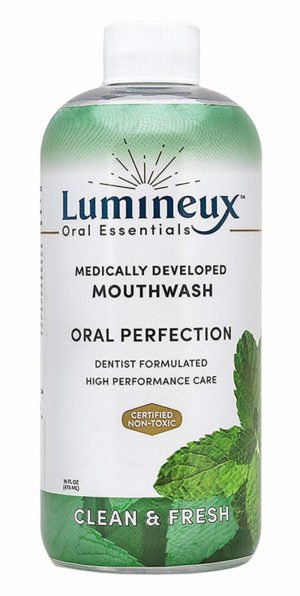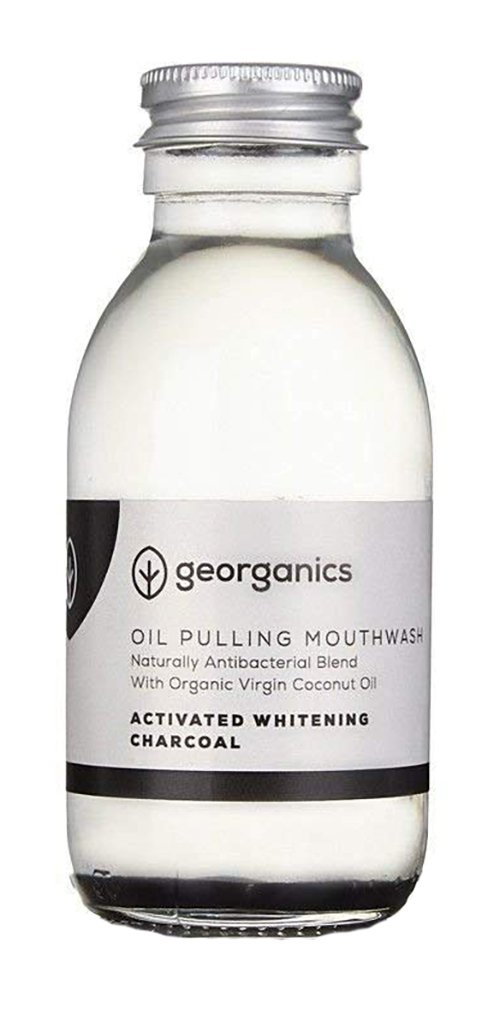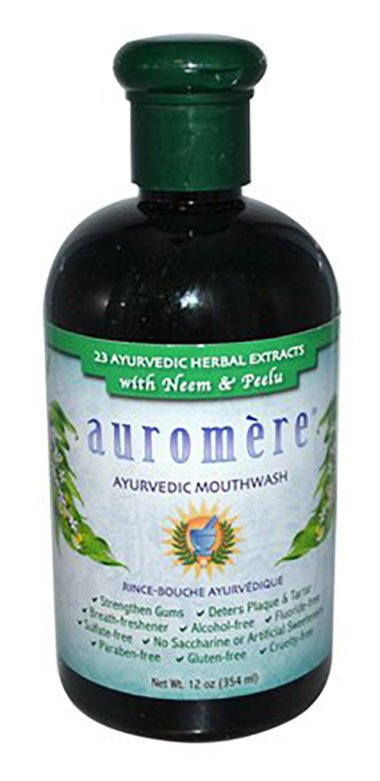Do you remember those commercials that told you to suffer through your mouthwash routine? Well, a lot of us still follow that regimen. After all, mouthwash kills harmful bacteria in the mouth and leaves your breath smelling minty fresh… right?
Not exactly. While mouthwash does kill bacteria, it doesn’t distinguish between harmful bacteria and the helpful flora that live in your mouth. Since antibacterial mouthwashes can wipe out all of the good bacteria, the bad bacteria come back at a different rate, making the problem of bad breath even worse.
Antibacterial mouthwashes can have even more adverse effects for some people due to their destruction of the oral microbiome. The oral microbiome is an essential part of a healthy gut microbiome, so blasting bacteria in the mouth can have repercussions on your digestion and even cardiovascular health (through disruption of nitric oxide production).
If we think of the gastrointestinal tract as a river, then the mouth is the source of that river. What you do in the mouth sets the stage for everything that comes after in the gastrointestinal tract and in the whole body.
The alcohol in most mouthwashes also dries out your mouth, which can make bad breath even worse, since saliva is what maintains a healthy pH in the mouth. Without saliva, bad bacteria run rampant and encourage halitosis (that’s the technical term for bad breath). The drying effects of mouthwash can even increase your risk of oral cancer, according to some studies.
The best way to keep your mouth smelling fresh is to brush, floss, and scrape your tongue at least once a day – no mouthwash needed.
But maybe you’re one of those people who loves their mouthwash routine and the fresh feeling it gives you. Especially if you’ve already transitioned to a better toothpaste that doesn’t have that super-minty flavor, you might not be entirely ready to give up mouthwash, and that’s okay.
There are a few products that aren’t as harmful as some of the bigger conventional brands (though in all honesty, you’re really spitting the money you invested in the product down the drain no matter what, as far as oral health is concerned).
When you’re picking a better mouthwash, go for something made with natural ingredients and avoid the following ingredients:
- Alcohol
- Chlorine dioxide
- Chlorhexidine
- Cocamidopropyl betaine
- Parabens
- Poloxamer 407
- Formaldehyde
- Saccharin
Here are a few products we like for their all-natural approach to making your mouth taste and smell a little bit sweeter:
1. Oral Essentials
Oral Essentials is a dentist-formulated mouthwash made with Dead Sea salt, well known for its rich mineral content. Sea salt can actually help remineralize your teeth (remineralization is the process of restoring minerals to your teeth).
This mouthwash also contains holy basil oil, a known adaptogen (a substance considered helpful in helping the body adapt to stress), and aloe vera juice, which is renowned for its soothing and healing properties.
Keep in mind, because there are essential oils in this mouthwash, it’s best to use sparingly rather than daily.
Boost Remineralization
Get Dr. B’s Dental Health Tips
Free weekly dental health advice in your inbox, plus 10 Insider Secrets to Dental Care as a free download when you sign up

2. Georganics Coconut oil Pulling Mouthwash
This mouthwash was formulated in accordance with an ancient Ayurvedic remedy for bad breath known as oil pulling. The mouthwash has a light coconut aroma thanks to organic coconut oil.
Oil Pulling Option
3. Auromere Ayurvedic Mouthwash
This mouthwash is made with neem, also known as the Indian toothbrush tree. Studies have shown that neem is as powerful for mouth health as chlorhexidine (a common disinfectant and antiseptic) without being nearly as dangerous.
Neem-Powered Option
BONUS! 3 Homemade Mouthwash Recipes
You can also make your own homemade mouthwash very simply with distilled water and baking soda. No need to add essential oils as they kill bacteria and could be harmful. Add sea salt to the combo for more mineralizing properties, though this mixture may be a bit less palatable. Then again, if you’ve been spending years swishing strong alcohol solutions, then a natural mix of baking soda, water, and salt should be a breeze!
Here are my top recipes for DIY mouthwashes to address specific concerns:
- Remineralizing Mouthwash—best for healing cavities naturally
- Turmeric Mouthwash—best for bad breath and gingivitis
- pH-Balancing Mouthwash—best for heavy coffee, wine, and soda drinkers to neutralize acid
Dr. Mark Burhenne
Got more questions about mouthwash and its effects on your oral health? Ask me a question!
Can Rinsing With Mouthwash Replace Brushing?



 9 Best Fluoride Free Toothpastes
9 Best Fluoride Free Toothpastes